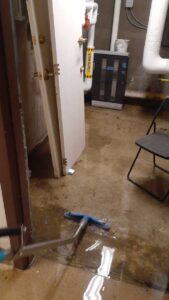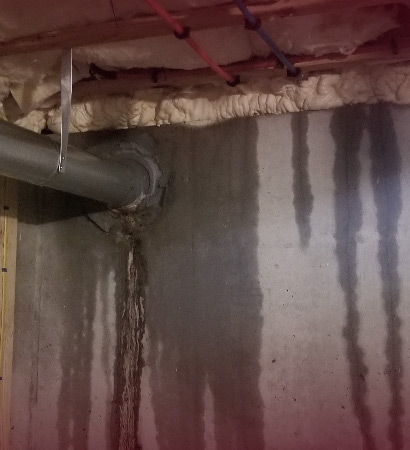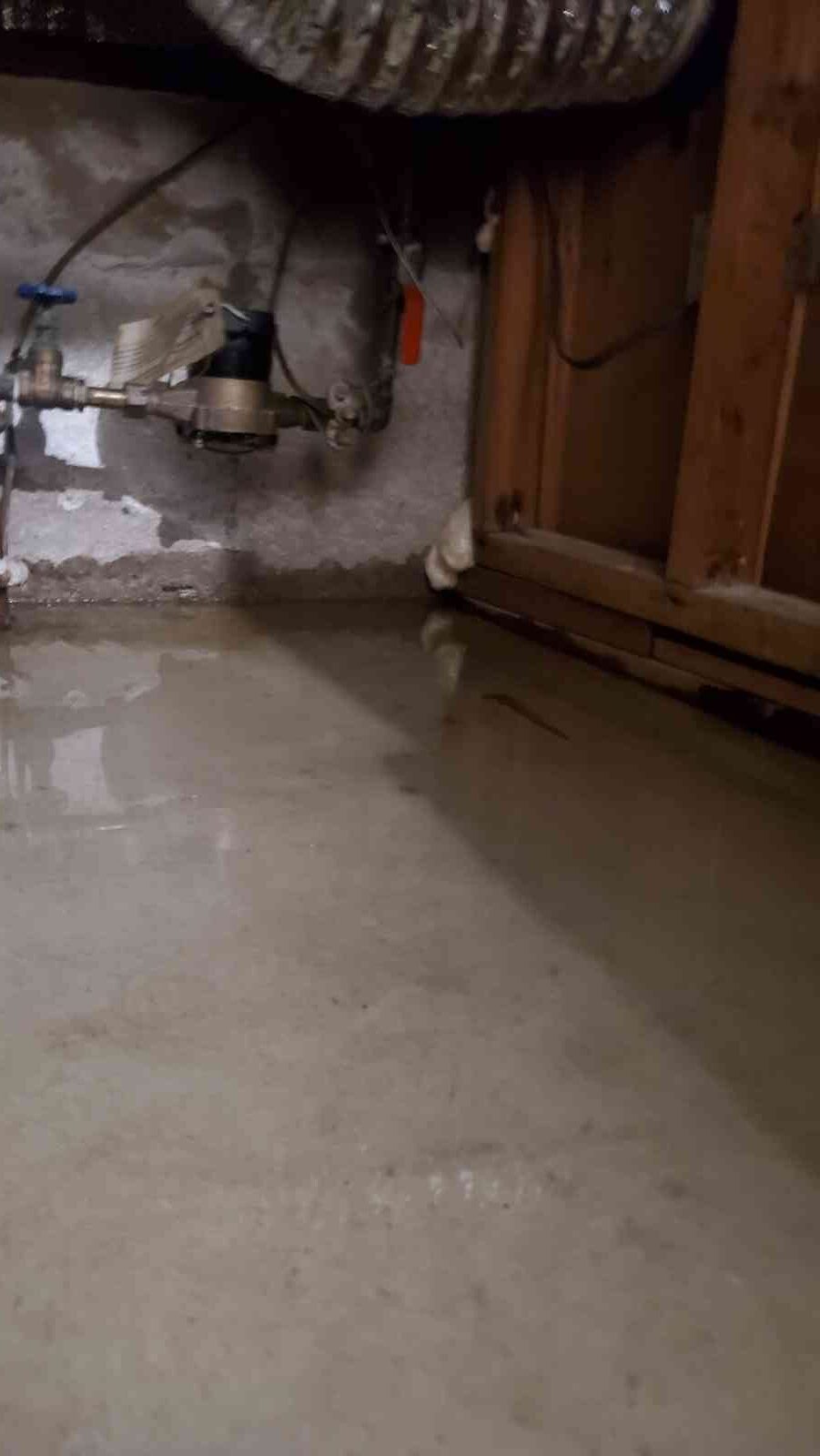Top Tips for Preventing Water Damage in Your Home
Water damage is one of the most common and costly issues homeowners face. Whether it’s from heavy rainfall, burst pipes, or a leaking roof, water damage can cause significant structural problems and lead to mold growth. Fortunately, there are several preventative measures you can take to protect your home.


 Water damage shown in closet, seeping through concrete wall, and on basement flooring.
Water damage shown in closet, seeping through concrete wall, and on basement flooring.
Follow the expert advice below to prevent water from damaging the interior and exterior of your home.
Maintain Your Gutters and Downspouts
One of the simplest yet most effective ways to prevent water damage is to keep your gutters and downspouts clean and in good repair. Clogged gutters can cause water to overflow and accumulate around your home’s foundation, leading to potential leaks and structural damage.
- Clean Regularly: Remove leaves, twigs, and debris from your gutters at least twice a year, preferably in the spring and fall.
- Check for Damage: Inspect your gutters and downspouts for cracks, rust, or loose sections and repair them promptly.
- Ensure Proper Drainage: Make sure downspouts direct water at least five feet away from your home’s foundation.
Inspect Your Roof
Your roof is your home’s first line of defense against water damage. Regular inspections can help identify and address potential issues before they become serious problems.
- Check for Missing or Damaged Shingles: Look for shingles that are cracked, curling, or missing and replace them as needed.
- Examine Flashing: Ensure the flashing around chimneys, vents, and skylights is secure and in good condition to prevent leaks.
- Look for Sagging: A sagging roof can indicate water damage or structural issues that need immediate attention.
Monitor and Repair Leaks Immediately
Even small leaks can cause significant water damage if left unaddressed. Regularly check your home for signs of leaks and repair them as soon as possible.
- Check Under Sinks and Around Appliances: Look for moisture or water stains under sinks, around toilets, and near appliances like dishwashers and washing machines.
- Inspect Ceilings and Walls: Be on the lookout for discoloration, bubbling, or peeling paint, which can indicate hidden leaks.
- Watch Your Water Bill: An unexplained increase in your water bill can be a sign of a hidden leak.
Ensure Proper Drainage Around Your Home
Water pooling around your home’s foundation can lead to basement flooding and structural damage. Proper drainage is crucial to prevent these issues.
- Grade Your Yard: Ensure the ground slopes away from your home’s foundation to direct water away from the building.
- Install a French Drain: If you have persistent drainage problems, consider installing a French drain to redirect water away from your home.
- Check Sump Pumps: If you have a basement, ensure your sump pump is in good working order, and consider installing a battery backup in case of power outages.
Install Water Detection Devices
Water detection devices can alert you to leaks before they cause significant damage, giving you time to address the issue.
- Place Near Potential Leak Sources: Install water alarms near water heaters, sump pumps, washing machines, and other appliances prone to leaks.
- Consider Smart Leak Detectors: Some modern devices can connect to your smartphone, alerting you to leaks no matter where you are.
Regularly Maintain Plumbing Systems
Your home’s plumbing is a potential source of leaks and water damage. Regular maintenance can help prevent problems.
- Inspect Pipes: Look for signs of corrosion, leaks, or damage in visible pipes and address issues immediately.
- Check Water Pressure: High water pressure can strain pipes and lead to leaks. Use a water pressure gauge to ensure your home’s water pressure is within safe limits.
- Flush Water Heater: Sediment buildup in your water heater can cause it to fail. Flush your water heater annually to remove sediment and extend its lifespan.
By taking these preventative measures, you can significantly reduce the risk of water damage in your home. Regular maintenance and prompt attention to potential issues are key to keeping your home safe and dry.
Remember: If you do experience water damage, DAI Restore is here to help with expert restoration services.
Stay proactive and protect your home!